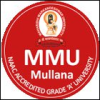How to become a Quality Control Manager
Overview, Courses, Exam, Colleges, Pathways, Salary

Overview
Who is Quality Control Manager ?
Quality control manager is one who ensures that the quality of the finished products of an organization is up to the mark of the standards as specified in the company policy or in the contract signed between the company and the buyer. Controlling and maintaining the quality of any finished product, may it be any factory output or organizational output, is very important in order to hold goodwill. Though it is thought that maintenance of the quality of any product or service means performing above a certain lower limit But it is not the real picture. The quality of any finished product or service is dependent on various factors. It depends on how far the quality is durable , its finishing, its feel and the cost incurred. Thus, it is not only the buyer to whose satisfaction, the quality of any product should be maintained, but it is also the seller who needs to run up to mark to ensure their interest.
Typical day at work
What does Quality Control Manager do?
- A quality control manager supervises the staff of the production unit and does an overview of the procedures of the product development to guarantee that quality and efficiency standards are met or not.
- Holds an understanding of the needs and requirements of the clients and communicates with them.
- Devise, improves and reviews new specification and procedures for products or processes and training personnel to use them
- Ensures the settlements of the raw materials from the suppliers and also looks over their compliances.
- Supervises inspectors,technicians and other staff members and provides them with proper guidance.
- Guarantees that the legal obligations are followed and takes into account of assent of the regulatory bodies with health and safety guidelines.
- Oversees the developmental procedures to identify deviation or mis-match from quality standard.
- Inspects the final product comparing it to the desired requirements and decides whether to accept or reject the finished product or services taking in accordance of the inspection done.
- Carries accurate documentation of the processes and performs statistical analysis based on it.
- Take feedback from the clients, attend meetings, submit reports and assist external auditors and inspectors.
Issuing reports on a regular basis also forms an important work of a quality control manager. On the basis of the size and structure of the company the quality manager may have to report to numerous people. In a large corporate environment with multiple quality management roles, managers may need to report to the Head of Quality, he /she again in turn reports supply chain or operations directors. Quality managers may even report directly to the departmental director. while in small manufacturing and engineering companies, The Quality control manager report to the Managing director or the Chief Executive
Being a quality control manager one can tread through a number of career pathways and come across a variety of people. Gradually, as one grows higher up in this field workload reduces. However the work can get a bit monotonous and a high level of experience may be required to get into this field. Professional education is a must for the role of a quality control manager and even additional education is sometimes also required.
Abilities and Aptitude needed
What are the skills, abilities & aptitude needed to become Quality Control Manager?
Becoming a successful Quality Control Manager requires a combination of abilities, skills, and aptitudes. Here are the key attributes needed to excel in this role:
- Strong Technical Knowledge: Quality Control Managers must deeply understand quality control principles, methodologies, and industry standards relevant to their field of work.
- Attention to Detail: The role involves meticulous inspection and analysis of products and processes, so a keen eye for detail is essential to identify potential defects or deviations.
- Analytical and Problem-Solving Skills: Quality Control Managers must analyse data, identify trends, and troubleshoot issues to improve product quality and process efficiency.
- Communication Skills: Effective communication is crucial for conveying quality standards, providing feedback to team members, and collaborating with other departments to implement quality improvement initiatives.
- Leadership and Management Skills: As a manager, the ability to lead and motivate quality control teams, set goals, and prioritise tasks is essential for achieving organisational quality objectives.
- Understanding of Quality Control Tools: Quality Control Managers should be familiar with various quality control tools such as Statistical Process Control (SPC), Six Sigma, and Root Cause Analysis (RCA).
- Regulatory Compliance: Depending on the industry, understanding and ensuring compliance with relevant quality and safety regulations is vital for maintaining product integrity and consumer trust.
- Continuous Improvement Mindset: Quality Control Managers should be committed to continuous improvement, always seeking ways to enhance processes, reduce defects, and increase efficiency.
- Time Management: The role involves managing multiple tasks and deadlines, so effective time management is crucial for maintaining a smooth quality control process.
- Collaboration and Teamwork: Quality Control Managers must collaborate with cross-functional teams, including production, engineering, and quality assurance, to achieve collective quality goals.
- Adaptability: Industries and technologies evolve, and Quality Control Managers must adapt to changes, implement new processes, and stay updated with the latest quality control techniques.
- Ethical Conduct: Upholding ethical standards and ensuring quality control practices align with the organisation's values and principles is essential for building trust and credibility.
Salary
Salary for Quality Control Manager?
Quality Control Manager
- Minimum Monthly Salary: For entry-level Quality Control Managers or those with limited experience, the monthly salary might range from INR 50,000 to INR 80,000.
- Maximum Monthly Salary: Highly experienced and skilled Quality Control Managers, especially those working with reputed industries, may earn a monthly salary ranging from INR 1,00,000 to INR 2,50,000 or more.
- Annual Salary: The annual salary for entry-level Quality Control Managers could be approximately INR 6 lakhs to INR 9.6 lakhs per year. Experienced and well-qualified managers may earn a maximum yearly salary ranging from INR 12 lakhs to INR 30 lakhs or more.
- Highest-Paying Jobs and Scope: The highest-paying jobs for Quality Control Managers in India are with industries prioritizing quality standards, such as manufacturing, pharmaceuticals, automotive, and aerospace. Quality Control Managers who possess a strong understanding of quality management principles, have successfully implemented quality improvement frameworks, and stay updated with the latest quality assurance practices can command higher salaries and may have opportunities for career growth into senior management or specialized roles. As industries continue emphasizing product quality and compliance, the demand for skilled Quality Control Managers is expected to remain favorable in the job market.
Pathways
How to become an Quality Control Manager?
Entrance Exam
Entrance Exam for Quality Control Manager ?
Courses
Which course I can pursue?
Best Colleges
Which are the best colleges to attend to become an Quality Control Manager?
Industries
Which Industries are open for Quality Control Manager?
A Quality Control Manager ensures that products and services meet specific standards and customer expectations. As such, they can find employment opportunities in various industries where quality control and assurance are vital. Some of the industries open for a Quality Control Manager include:
- Manufacturing: This is one of the most common industries where Quality Control Managers are in demand. They oversee production, conduct inspections, and implement quality control measures to maintain consistent product quality.
- Pharmaceuticals: Quality Control Managers in the pharmaceutical industry ensure that drugs and medical products meet regulatory standards and are safe for consumption.
- Food and Beverage: In this industry, Quality Control Managers ensure food products are produced and processed by food safety and quality standards.
- Automotive: Quality Control Managers in the automotive sector focus on maintaining the quality of vehicle components and ensuring safety standards are met.
- Electronics: In the electronics industry, Quality Control Managers oversee the production and testing of electronic devices to ensure they meet performance and safety standards.
- Aerospace: Quality Control Managers in aerospace are critical in ensuring that aircraft components and systems meet strict quality and safety standards.
- Construction: Quality Control Managers in construction ensure that buildings and infrastructure projects adhere to specifications and meet quality and safety requirements.
- Healthcare: In healthcare facilities, Quality Control Managers maintain the quality of medical services and ensure compliance with healthcare regulations.
- Textiles and Apparel: Quality Control Managers in this industry monitor the production of fabrics and garments to maintain quality and consistency.
- Oil and Gas: Quality Control Managers in the oil and gas industry ensure that processes, equipment, and products adhere to industry standards and safety protocols.
- Environmental: In environmental consulting firms, Quality Control Managers may be responsible for monitoring and ensuring the accuracy of environmental data and reports.
- Consumer Goods: Quality Control Managers in the consumer goods industry oversee the quality of products such as household goods, personal care items, and electronics.
internship
Are there internships available for Quality Control Manager?
Internships for aspiring Quality Control Managers can be beneficial in gaining practical experience and understanding the role's responsibilities. While specific internships dedicated solely to Quality Control Management may not be as common as other roles, there are several avenues to explore:
- Manufacturing Companies: Many manufacturing companies offer internships in quality control or quality assurance departments. Interns may assist in product inspections, data analysis, and process improvement projects.
- Quality Consulting Firms: Some consulting firms specialise in quality management and may provide internships to students or graduates interested in learning about quality control methodologies and implementation.
- Pharmaceutical and Healthcare Industries: Internships may be available in pharmaceutical companies or healthcare organisations' quality control departments, where interns can work on quality compliance and validation processes.
- Food and Beverage Industry: Companies in the food and beverage sector often have internships in quality control, ensuring product safety, and maintaining quality standards.
- Consumer Electronics Companies: Technology and electronics firms may offer internships in quality control to ensure the functionality and reliability of their products.
- Automotive Industry: Automotive companies may have internships in quality control to monitor the quality of vehicles and components.
- Research and Development: Some R&D departments may offer internships to students interested in contributing to quality testing and verification processes.
- Government and Regulatory Agencies: Internships may be available in government agencies responsible for monitoring and enforcing quality standards in various industries.
Career outlook
What does the future look like for Quality Control Manager?
The career outlook for Quality Control Managers appears promising, with increasing demand across various industries. As companies prioritize product quality and customer satisfaction, the role of Quality Control Managers becomes critical in maintaining high standards. Advancements in technology, such as automation and data analytics, are likely to streamline quality assurance processes, allowing managers to focus on strategic decision-making and continuous improvement. Moreover, industries like pharmaceuticals, healthcare, and technology are expected to offer substantial opportunities for Quality Control Managers due to stringent regulations and the need for precision. Emphasis on sustainable and environmentally friendly practices may also create new roles in quality management. Overall, professionals in this field can anticipate steady growth and advancement prospects as organizations recognize the value of robust quality control systems in enhancing their competitive edge.







